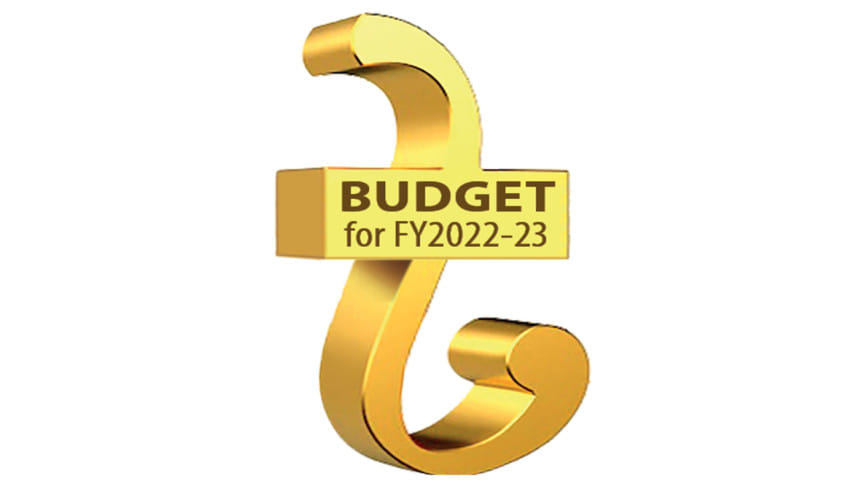Keep note of war, Lanka’s woes in budget plan: experts

The government should keep in consideration the Russia-Ukraine war, global economic recovery from the pandemic's severe fallout and the latest collapse of the Sri Lankan economy when preparing the budget for fiscal year 2022-23, said experts and businesspeople yesterday.
Otherwise, Bangladesh's economy may face internal and external shocks for these three burning global issues, they told a discussion on "Macro Economy: Expectation from National Budget 2022-23" at the Institute of Chartered Accountants of Bangladesh (ICAB).
The discussants pointed out that the balance of payments (BoP) over the past 10 months has gone on to exceed $10 billion as imports are surging to meet growing demand, which was already up by more than 54 per cent year-on-year.
At the end of the fiscal year, the BoP will reach $20 billion whereas historically it has hovered between $7 billion and $8 billion, they told the event jointly organised by Economic Reporters' Forum (ERF) and the ICAB.
Considering the current global scenario, it will be unusual forthe BoP to reach $20 billion, said Ahsan H Mansur, executive director of Policy Research Institute.
So considering current global contexts, the government should take proactive and pre-emptive decisions in the upcoming budget so that the externalities can be offset through wise decisions, he said.
For instance, the current tight monetary policy should be continued for a long time, said Mansur.
Inflation in the country was shown to be less than 6 per cent but in many nations it has already gone past 10 per cent, he said, suggesting that the facts be checked to figure out the actual figure.
The government provides over Tk 1 lakh crore in subsidies, which was more than 20 per cent of the overall budgetary allocation, Mansur said, suggesting to be rational in the allocation.
Calling for automation to be brought about in actuality in revenue collection, the top economist also suggested reviewingthe 2012 VAT law which was currently in effect.
Mansur reiterated the need for tax administrators and tax collectors to separately function for attaining greater efficiency.
Echoing Mansur, Planning Minister MA Mannan said the reforms were drastically needed in the National Board of Revenue.
Allocations to unproductive sectors cannot be justified in any way but the political government sometimes does it in an excessive mannerfor compulsions of the political economy, he said.
Praising the private sector's successes, Mannan advocated enabling more freedom for the sector.
In this regard, he also praised bureaucrats for implementing government action plans even in the face of criticisms.
Criticising bureaucrats is a counter-productive move and the civil society should also provide more constructive advice, he said.
Saiful Islam, president of the Metropolitan Chamber of Commerce and Industry, said the eighth five year plan needs to be revised for some corrections.
For instance, he said, the share of non-traditional goods in exports was targeted to be taken to 25 per cent but last fiscal year it could not be grown and garment items continued to dominate with an 82 per cent share.
Islam also said local corporates pay 8 per cent to 10 per cent more tax compared to their South Asian peers and the effective rate is more than 50 per cent since there were other taxesthat come into effect with the current corporate tax.
He also suggested reviewing the VAT law and launching a programme enabling taxrefunds for taxpayers.
Rasheda K Chowdhury, a former caretaker government adviser, suggested taking up bigger projects in the education sector to bring substantial improvements.
For instance, she suggested continuing stipends for female students even after they got married.
She also suggested developing the present condition of hostels for working women.
She sought to know the rationale behind a Tk 1,000 crore allocation for a safari park which would double as a sanctuary for elephants at Juri upazila under Moulvibazar district.
Shawkat Hossain Masum, head of online at Bangla daily Prothom Alo, suggested having a functional banking commission and government expenditure review commission.
Shomi Kaiser, president of the e-Commerce Association of Bangladesh (e-CAB), sought allocations for skills development.
AK Khan, former president of the Dhaka Chamber of Commerce and Industry, suggested for empowering state-owned Bangladesh Petroleum Exploration and Production Company to address any possible energy shortages for the Russia-Ukraine war.
Monzur Ahmed, a representative of the Federation of Bangladesh Chambers of Commerce and Industry, recommended keeping in mind possible challenges for the country's United Nations status graduation to a developing country.
Md Shahadat Hossain, president of the ICAB, was for expanding the tax net.
Md Humayun Kabir, a former ICAB president, moderated the discussion where Asif Ibrahim, chairman of Chittagong Stock Exchange, Md Eunusur Rahman, chairman of Dhaka Stock Exchange, Sharmeen Rinvy, president of the ERF, and SM Rashidul Islam, general secretary to the ERF, also spoke.

 For all latest news, follow The Daily Star's Google News channel.
For all latest news, follow The Daily Star's Google News channel. 



Comments